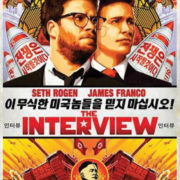Federal investigators have now connected last month’s cyber-attack on Sony Pictures Entertainment to North Korea, according to an official’s announcement made Wednesday, Dec. 17. It remains unclear how the government would respond to the break-in, which exposed sensitive documents and information, incriminating leaked emails from Sony executives, and ultimately led to terrorist threats against moviegoers.
It may be the most damaging, unprecedented, and costly cyber-hack ever inflicted on a major American business.
The anonymous official, who said a more formal statement would come in the near future, was not authorized to openly discuss an ongoing criminal case.
North Korea has publicly denied involvement in the hack, and FBI Director James Comey said last week that there was “still more work to be done” for investigation.
The unidentified hackers demanded that Sony cancel its Christmas release of the comedy movie “The Interview,” starring James Franco and Seth Rogen, which outlines a fictional CIA plot to assassinate North Korean supreme leader Kim Jong Un. North Koreans have repeatedly denounced the film, warning of “stern” and “merciless” retaliation, but until Wednesday the government had declined to comment.
“This attack went to the heart and core of Sony’s business and succeeded. We haven’t seen any attack like this in the annals of US breach history,” said Avivah Litan, a cybersecurity analyst at research firm Gartner.
Sony announced on Wednesday that it would cancel its release of the film, citing the threats of violence at movie theaters showing the movie. The studio later said it had no further plans to release the film.
The disclosure about North Korea’s involvement came just after Sony hired FireEye Inc.’s Mandiant forensics unit, which published a landmark report last year with evidence accusing a Chinese Army organization of hacking into over 140 companies.
Mandiant’s work on the China investigation helps provide clues to its methods, tracing the origins and tools of hacker break-ins, programming codes, social media aliases, and other circumstantial evidence.
The alleged hackers, who remain unidentified but call themselves the Guardians of Peace, had made threats of violence if movie theatres showed the film.
“We recommend you to keep yourself distant from the places at that time. We will clearily show it to you at the very time and places ‘The Interview’ be shown, including the premiere, how bitter fate those who seek fun in terror should be doomed to,” the hackers said in a public note to moviegoers posted online Tuesday morning.
“We are deeply saddened at this brazen effort to suppress the distribution of a movie,” Sony Pictures said in a statement.
National Security Council spokeswoman Bernadette Meehan said the US government had no involvement in Sony’s decision, and added that artists and entertainers have the right to produce and distribute whatever content they want in the US.
Sony faces trouble on several fronts, including millions in box office losses from “The Interview,” sensitive information leaks such as upcoming movie scripts, implicating emails revealing negative comments by studio executives, lawsuits from employees whose information was exposed, and other tight-lipped legal woes.
Between the threatening concerns with North Korea and the studio’s heavy financial blow, many agree the cyber-attack and Sony’s capitulation has raised troubling questions about self-censorship, Internet security, and whether other entertainment studios and corporate businesses are also vulnerable.
Some industry insiders speculated Sony might release the film in video-on-demand format; however, the studio has not confirmed any further release plans.
“Today the US succumbed to an unprecedented attack on our most cherished, bedrock principle of free speech by a group of North Korean terrorists who threatened to kill moviegoers in order to stop the release of a movie,” screenwriter Aaron Sorkin, who was also affected by the Sony hack, said in a statement. Sorkin accused the media of focusing on industry gossip “over a story with immeasurable consequences for the public.”
“Artistic freedom is at risk,” said Efraim Levy, a senior financial analyst at research firm S&P Capital IQ. “Are we not going to put out movies that offend some constituencies?”
(With reports from Associated Press, USA Today)
–
(LA Weekend December 20-23, 2014 Sec. D pg.1)






